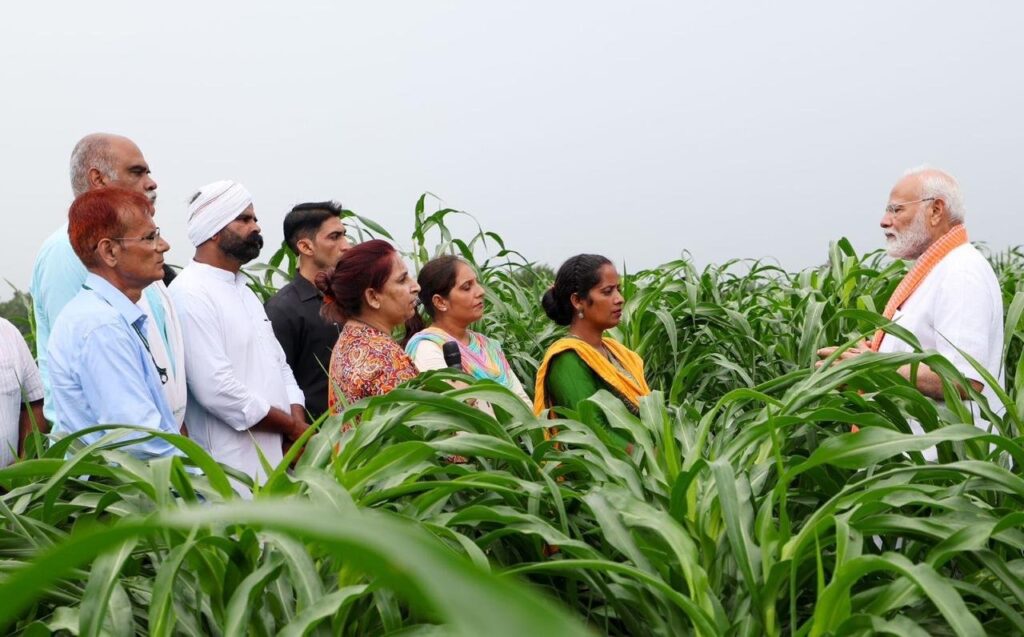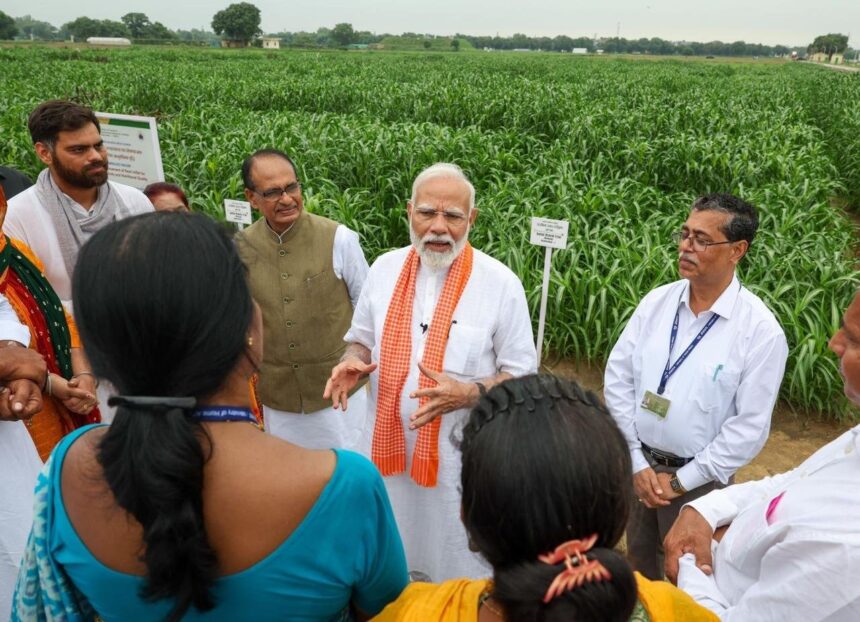PM highlighted the significance of value addition in agriculture
Farmers said the new varieties will be highly beneficial as they will help reduce expenditure and also have a positive impact on environment
PM lauded scientists for the development of these new crop varieties
Scientists informed that they have been working in line with the suggestion given by PM to bring unutilised crops into mainstream
PM discussed the benefits of natural farming and the increasing demand for organic food
PIB News 11 August, 2024: Prime Minister Narendra Modi released 109 high yielding, climate resilient and biofortified varieties of crops at India Agricultural Research Institute, New Delhi earlier today.

Prime Minister also interacted with the farmers and scientists on the occasion. Discussing the importance of these new crop varieties, Prime Minister stressed on the significance of value addition in agriculture. The farmers said that these new varieties will be highly beneficial as they will help reduce their expenditure and also have a positive impact on the environment.

Prime Minister discussed the importance of millets and underlined how people are moving towards nutritious food. He also talked about the benefits of natural farming and the increasing faith of common people towards organic farming, adding that people have started consuming and demanding organic foods. The farmers appreciated the efforts undertaken by the government for promoting natural farming.
The farmers also lauded the role played by Krishi Vigyan Kendras (KVK) in creating awareness. Prime Minister suggested that KVKs should proactively inform farmers about the benefits of the new varieties being developed every month to enhance awareness about their benefits.
Prime Minister also lauded the scientists for the development of these new crop varieties. The scientists informed that they have been working in line with the suggestion given by Prime Minister to bring unutilised crops into the mainstream.
The 109 varieties of 61 crops released by the Prime Minister included 34 field crops and 27 horticultural crops. Among the field crops, seeds of various cereals including millets, forage crops, oilseeds, pulses, sugarcane, cotton, fibre and other potential crops were released. Among the horticultural crops, different varieties of fruits, vegetable crops, plantation crops, tuber crops, spices, flowers and medicinal crops were released.









